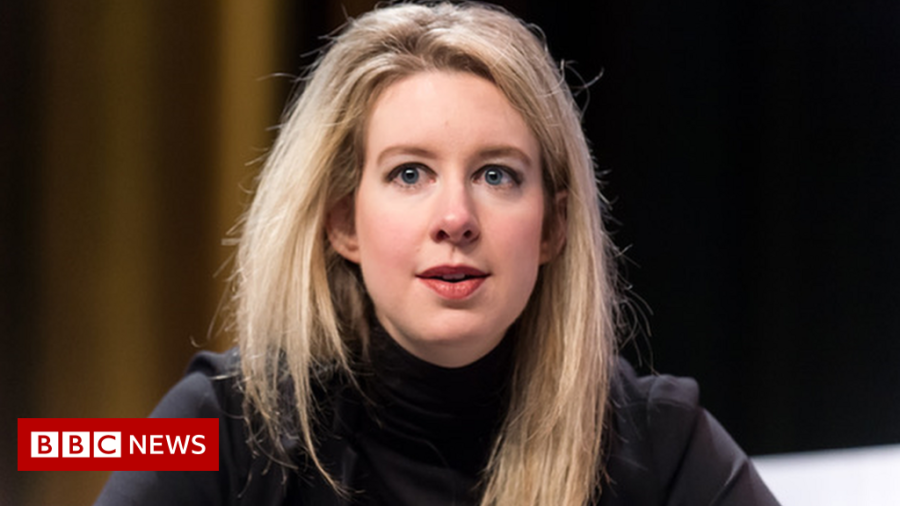Silicon Valley Scandal: Elizabeth Holmes
March 2, 2022
Elizabeth Holmes was a quiet child who came from a long line of successful and influential people. Her parents were both bureaucrats in Washington D.C. on Capitol Hill and her great-great-grandfather founded Fleischmann’s Yeast, a company known to have revolutionized the bread-making industry. As one can imagine, this led to immense pressure to follow in her ancestor’s footsteps, with an emphasis being placed on preserving the family’s reputation throughout her childhood. This had a huge effect on Elizabeth’s mindset and by the age of nine, she had already proclaimed the desire to change the world by discovering something seemingly impossible. Little did she know that by the age of thirty, she would fool everyone into thinking just that.
In 2002, Holmes attended Stanford University for a major in chemical engineering. During her freshman and sophomore years, she developed an idea for a patch that could detect diseases and release antibiotics accordingly. However, once some of her professors caught wind of the concept, they expressed skepticism. Elizabeth largely ignored their criticism, much to their dismay, and ended up dropping out of college during her sophomore year. In 2003, at the age of nineteen, she pursued her start-up Theranos, which stood for a combination of the words “therapy” and “diagnosis.” Apparently, the company had discovered a revolutionary way to detect disease through the simple prick of a finger. Rich, powerful, and influential people alike were captivated by this groundbreaking technology and invested millions of dollars into Theranos. For example, media tycoon Rupert Murdoch had invested $125 million, among others such as US Treasury Secretary George Schultz and the Waltons (the richest family in America).
Only one thing was wrong: the idea did not work. With influential people to support her credibility and her confident demeanor, Holmes was able to defraud all of her investors. In fact, Dr. Jeffery Flier, the former dean of Harvard Medical School, invited her to join its Board of Fellows. By 2014, Elizabeth was a multi-billionaire and her company was valued at around $9 billion. She had become the world’s youngest female self-made billionaire, a role model women everywhere looked up to. But in 2015, it all began to fall apart. A whistleblower had exposed that Theranos’s main testing device, the Edison, was extremely unreliable and that the company had been using other machines (not created by Theranos) to complete testing. Although Elizabeth denied these accusations, she was piled with lawsuits and federal investigations. Holmes was sued by Walgreens, Partner Fund Management, Centers for Medicare and Medicaid Services (a federal agency), and Brian Grossman (who invested $96 million) to name just a few.
In 2016, the FDA banned Theranos from administering public blood-testing for two years. In March of 2018, Elizabeth and her ex-husband/business partner Ramesh Balwani are arrested and charged with fraud. Holmes is forced to relinquish control of the company and her shares. That same year Theranos was eventually dissolved. Prosecutors claimed that Holmes knowingly mislead customers and greatly exaggerated her firm’s performance to investors. In a 15-week trial, she was found guilty of one count of conspiracy to defraud investors and three counts of wire fraud. When it was all said and done, she faces up to 20 years in prison and a fine of $250,000 in restitution. Elizabeth Holmes, once a Silicon Valley icon, is now a disgraced criminal shrouded in shame and scandal.
